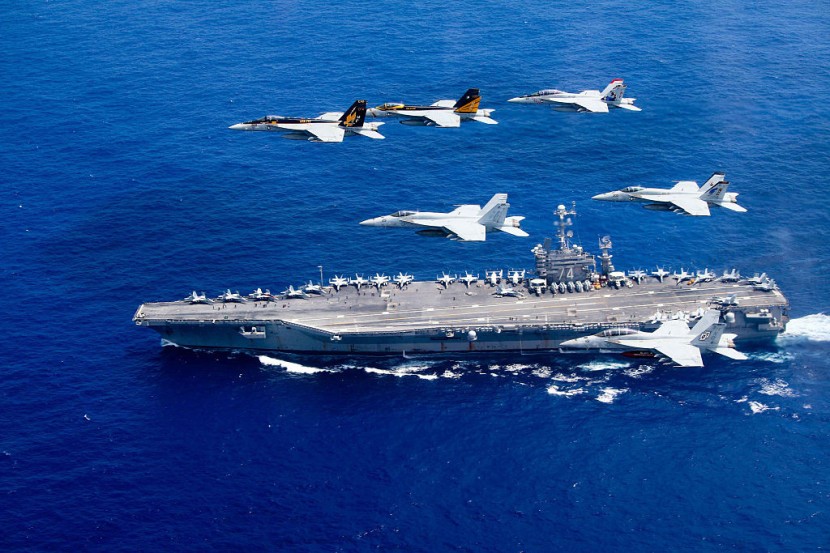
China is preparing to increase its military presence near Alaska, potentially deploying bomber flights, a top U.S. general has warned. Air Force Gen. Gregory M. Guillot, head of U.S. Northern Command (NORTHCOM) and North American Aerospace Defense Command (NORAD), told the Senate Armed Services Committee that Beijing is expanding its operations not only in the skies but also across maritime and undersea domains.
Guillot also highlighted the growing military cooperation between China and Russia in the region, marking an escalating challenge for U.S. defense strategy, Eurasian Times reported.
Arctic: A New Geopolitical Flashpoint
The Arctic, once a frozen frontier, is becoming a global hotspot. In July 2023, the U.S. unveiled its Arctic strategy, underscoring two primary concerns: intensifying China-Russia collaboration and the accelerating impact of climate change.
"The Arctic is changing rapidly—both strategically and physically," the Pentagon warned. As melting ice makes the region more accessible, the Arctic has become a focal point for global competition. The U.S. and NATO regularly conduct joint exercises in the High North to counter Russian aggression and improve operational readiness.
In the summer of 2023, Russian and Chinese naval forces conducted joint exercises in the Bering Strait, signaling deeper collaboration. That momentum carried into 2024 when four Chinese warships were spotted near Alaska within America's Exclusive Economic Zone (EEZ). While the Chinese navy justified the operation as "freedom of navigation," the U.S. Coast Guard ensured a strong American presence.
Strategic Stakes in the Arctic
Russia and China view the Arctic as both a strategic and economic opportunity. The Northern Sea Route (NSR), now more navigable due to melting ice, offers a faster shipping path between Asia and Europe, challenging traditional trade routes like the Suez Canal.
Russia, with its extensive Arctic coastline, is capitalizing on this shift, promoting the NSR and teaming up with China through the "Polar Silk Road" initiative. The Arctic's untapped resources—13% of the world's undiscovered oil and 30% of its natural gas—further heighten geopolitical stakes.
China, despite being far from the Arctic, has declared itself a "near-Arctic state" and is investing heavily in the region's infrastructure, eyeing its vast energy and mineral wealth.
A Growing Threat to U.S. Security
The strategic importance of the Arctic extends beyond trade and resources. The region represents the shortest missile corridor between Russia and the U.S., making it critical for missile defense.
General Guillot expressed deep concern over the strengthening Russia-China military ties. "The growing cooperation between China, Russia, North Korea, and Iran to challenge the United States has direct implications for homeland defense," he warned.
The possibility of China and Russia granting each other military basing rights in the Arctic could significantly undermine U.S. strategic advantages. "That," Guillot emphasized, "would be a game-changer."
© 2025 HNGN, All rights reserved. Do not reproduce without permission.








